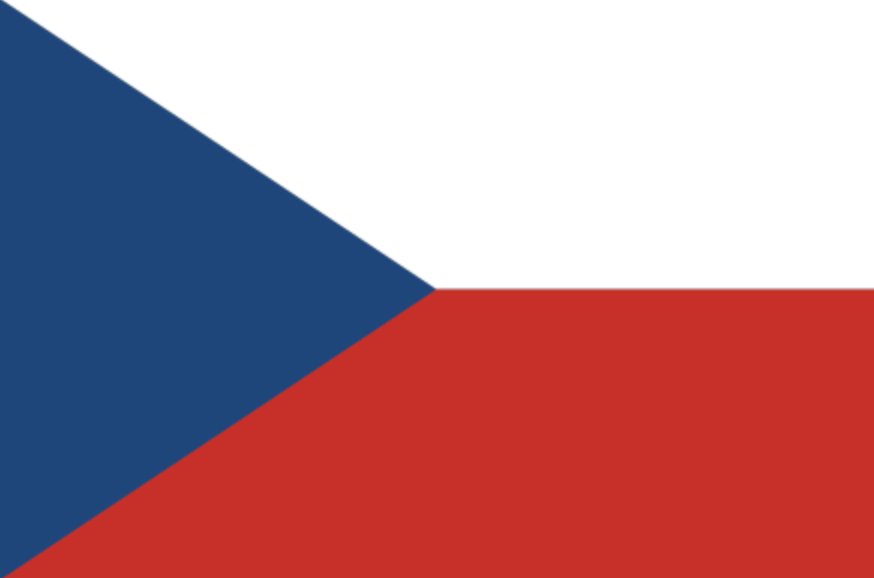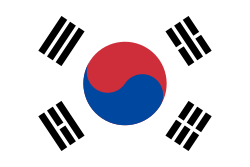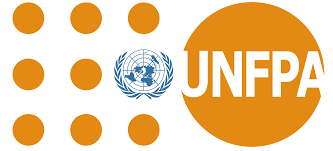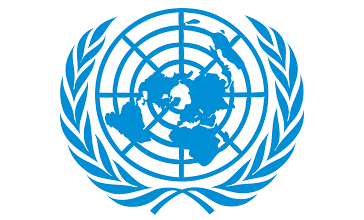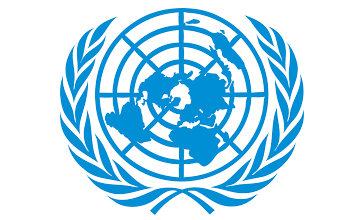IOM Vision
IOM will support the dignity, safety and protection of people affected by the war in Ukraine, through a comprehensive response. Targeting internally displaced persons (IDPs), returnees, and host and affected communities, IOM will support the provision of and access to quality services, leveraging active and growing programming across the humanitarian, development and peace nexus. In close coordination with national and regional stakeholders, IOM is engaged in a principled and timely multi-sector response, supporting government partners, and local authorities and actors to respond to the crisis, including through recovery and resilience-building initiatives which enable households to find pathways towards durable solutions.
Objective
Saving lives and protecting people on the move
IOM will provide critically needed assistance to internally displaced persons (IDPs), returnees, and other affected populations. IOM will especially focus on vulnerable groups such as single parents, persons with disabilities, children, including unaccompanied and separated children (UASC), older persons, survivors of gender-based violence (GBV) and human trafficking, and victims of other human rights violations, and those that have been disproportionately affected by a lack of services and loss of livelihoods with special mention of veterans and their families. Planning figures are estimates based on currently available data and may vary as the situation evolves.
IOM will also support governments, partners and relevant stakeholders in Ukraine by maintaining capacities to collect humanitarian and recovery data, track mobility and displaced people’s movements and needs and produce timely and high-quality actionable analysis. Products will be shared, and information or capacity-building sessions will be held to support stakeholders to receive and utilize targeted, evidence-based responses to crises and recovery.
The entities targeted under this objective include 500 collective centres accommodating IDPs, communities, central, regional and local government authorities, vodakanals (municipal water management authorities), and international and local NGOs.
In 2024, IOM will continue providing essential humanitarian assistance, such as non-food items (NFI), to those affected by the war in Ukraine. NFI assistance will be distributed in accordance with the Shelter/NFI (S-NFI) Cluster geographical context classifications. Through various distribution modalities adaptable to the Ukraine context, IOM will provide essential household and individual basic NFI through direct distributions, implementing partners, coordinated interagency convoys, and the Common Pipeline programme supporting more than 40 Cluster partners. IOM will prioritize the most vulnerable affected population in its assistance, through referrals received from S-NFI and WASH Clusters, local authorities, CCCM, Protection, MHPSS and Health sectors. Activities will include:
-
Assessing and verifying needs.
-
Procuring, prepositioning and managing household and individual NFI as per S-NFI and WASH Cluster standards.
-
Distributing NFI items for displaced, non-displaced and returnee families who have lost their belongings, including winterization NFIs and winter clothing from January to March 2024 and October to December 2024.
-
Building capacities and competencies of national and sub-national partners on humanitarian principles, good distribution practices, reporting and assessment standards, and practices for beneficiary protection and dignity.
-
Post-distribution monitoring and evaluations to generate an overall understanding on gaps, strengths, and shortcomings in the activities, incorporate changes and improvements for future quality programming.
IOM will continue assisting vulnerable people affected by the war to address the most pressing needs by:
-
Providing Multi-Purpose Cash Assistance (MPCA) to cover the basic needs and reduce the negative coping strategies of displaced and vulnerable households living close to the contact line.
-
Protecting and sustaining the livelihoods of rural households by providing sustenance grants to the most vulnerable households. Grants can be used to purchase agricultural inputs, including goods and services, along with the MPCA and complementary livelihoods assistance.
IOM will sustain its interventions to enhance local capacities and support IDPs residing in collective centres, shelters, reception and transit sites in a safe and dignified manner, through:
- Improving access to humanitarian services and protection by coordinating and referring the needs of the most vulnerable to specific partners and upgrading the living conditions in collective shelters with the provision of essential items and equipment.
- Providing cash grants for common expenditure to site managers to support care and maintenance and the running of the centres, including the cost of utilities such as electricity, water and gas as well as procurement of basic items such as water taps, bottles, papers, hygiene products etc.
- Providing targeted capacity-building programming for national and local authorities, NGOs, volunteers and other CCCM-related actors to strengthen their capacity to manage displacement and support durable solutions for affected populations, along with ensuring complaint and feedback mechanisms are in place.
- Ensuring free access to information for displaced populations and empowering them to participate in decision-making processes related to their displacement, their integration into host community and return, including linking IDPs to administrative and social protection services.
- Promoting social cohesion, integration and IDP inclusion through community-led activities.
- Advocating for the needs and conditions of the most vulnerable by conducting periodical monitoring and multi-sectoral assessments in collective centres and displacement sites.
- Advocating for site infrastructures upgrade and about lack of accessibility to the shelter team and local partners.
IOM deploys mobile medical teams providing curative, preventive, and promotive services, including trauma care and psychological counselling, improving access to health care services, including support for non-communicable diseases, and to reduce the burden on the health system in remote and hard to reach areas with high concentration of displaced populations. Activities will include:
- Providing emergency medical supplies and equipment for targeted health facilities to grant the continuity of quality and dignified emergency and essential health services.
- Directly providing health-care services (consultation, vaccination, sexual and reproductive health (SRH), noncommunicable (NCD) child and maternal care and referrals).
- Building capacity on management of outbreak response, strengthening infection prevention and control, disease surveillance among displaced populations, and vaccinations.
- Conducting risk communication and community engagement (RCCE), health promotion, and outreach activities.
IOM works with national authorities to establish and strengthen an integrated approach to border management to facilitate, assist and protect crisis-affected populations crossing borders, and so that rights-based policies and procedures are in place to guarantee safe pathways. Activities will include:
- Conducting continuous humanitarian border management (HBM) capacity assessments in coordination with national authorities at the central level as well as at Border Crossing Points (BCPs).
- Supporting national authorities to strengthen preparedness for high volume cross border movements and changing mobility dynamics, particularly through advising on simplified effective procedures, further digitalization and automation of border and customs procedures, and provision of fixed/mobile registration equipment.
- Enhancing capacity of national authorities to screen and refer individuals in vulnerable situations with a focus on unaccompanied and separated children and potential victims of violence, exploitation or abuse.
- Strengthening the institutional capacity of the Ukrainian consular service so Ukrainian nationals abroad due to the war are better assisted.
- Providing critical equipment at the border such as diesel generators, contributing to the uninterrupted border operations.
- Facilitating and coordinating multisectoral work at the borders implemented by IOM, including protection, WASH, health, shelter, and mental health and psychosocial support (MHPSS), so the cross-border passage is safer.
In line with the IOM Manual on Community-Based MHPSS in Emergencies and Displacement, activities focus on:
- Enhancing community understanding of mental health challenges and existing services to reduce mental health stigma and barriers accessing services through public information and awareness campaigns to support populations, including IDPs, communities, veterans and their families, returnees, and more.
- Building capacity, to improve the skills and knowledge of government, volunteer, professional groups and humanitarian providers. This includes training on psychological first aid (PFA), communication and other basic psychosocial support skills, stress management, self-care and burnout prevention to equip service providers to meet war-affected individuals’ psychosocial needs and provide effective services. IOM will strengthen capacities of local coordinators under the cabinet of ministers coordination centre and support government MHPSS initiatives for a cohesive response.
- Providing community-based MHPSS services through activities that strengthen family and community support networks, aiding in maintaining and promoting mental health and psychosocial wellbeing.
- Providing tailored individual and group counselling as well as referrals for specialized mental health care for war-affected individuals with MHPSS needs.
- Continuing to run the MHPSS emotional support hotline and offer psychological consultations to callers in Ukraine and host countries, including referrals to services to support those with severe mental health problems.
- Co-chairing the MHPSS Sub Working Group East of Ukraine (Dnipro hub).
IOM’s shelter interventions provide safe and dignified living conditions to people in need. Shelter assistance focuses on areas most affected by the war, and particularly vulnerable households, including through:
- Repairing individual houses damaged as a result of the war.
- Conducting light, medium and heavy repairs and maintenance to collective centres hosting IDPs.
- Providing rental assistance for transitional shelter solutions as an emergency response in case of shelling.
- Repairing social institutions (such as hospitals and schools) in collaboration with ministries such as the Ministry of Heath, Ministry of Education and Science, and Ministry of Reintegration of Temporarily Occupied Territories, and the Office of the Deputy Prime Minister, as well as regional, district and municipal authorities.
- Providing generators, construction materials, roofing, and electrical materials.
- Conducting winterization interventions at the individual and communal levels, including procuring and distributing generators, solid fuel and winter appliances, along with winterization-related repairs and upgrades.
IOM activities aim to protect persons from threats to their life, dignity and well-being, while increasing self-reliance capacities to reduce the risk of harm, by addressing the needs and upholding the rights of the affected population. Priorities include direct service delivery and assistance by IOM and partners for persons with protection needs, prevention efforts through awareness-raising and community outreach, capacity development throughout the response, protection from sexual exploitation and abuse (PSEA) and include:
- Providing comprehensive case management services to persons with protection needs or those at risk, including survivors of war-related violence, war-related human rights violations, human trafficking and gender-based violence (GBV). Assistance includes information, counselling, psychosocial support, safe shelter, legal services, in-kind material support or cash for protection assistance to meet basic needs, vocational training and income-generating support, and referrals to other specialized services.
- Operating the Medical Rehabilitation Centre to provide comprehensive, safe and confidential medical care, psychological assistance, and psychosocial support for survivors of war-related violence, human trafficking and GBV.
- Identifying and mitigating the risk of various harms, including to human trafficking, exploitation, and abuse as well as SEA, through protection assessments, community consultation, engagement, outreach and awareness-raising activities, information campaigns and visibility of information on reporting of sexual misconduct of humanitarian workers and ways to access assistance.
- Operating the national toll-free ‘527’ counter-trafficking and migrant advice hotline.
- Building capacity of humanitarian and non-specialized service providers on core concepts of protection and safe referral pathways for persons with protection needs, as well as on PSEA, including incorporation of IASC principles into their organizational policies and strengthening of referral mechanisms.
- Regular staff trainings and refreshers as well as key messaging on PSEA.
- Conducting nationwide awareness-raising counter-trafficking campaigns, as well as targeted prevention activities among youth and people most vulnerable to human trafficking, exploitation or abuse.
- Operating the Medical Rehabilitation Centre to provide comprehensive, safe and confidential medical care, psychological assistance, and psychosocial support for survivors of human trafficking, exploitation or GBV.
- Building capacity of educators, social services, law enforcement, labour inspectors, embassies, etc. on strengthening the national referral mechanism for trafficking survivors.
IOM supports national and local authorities to mitigate the impact of the war on the availability of life-saving water, sanitation, hygiene and heating services. Activities will include:
- Procuring, prepositioning and distributing WASH NFIs, including menstrual hygiene management items (MHM) for women and girls, specific items for other vulnerable groups (such as the elderly and people with special needs), and equipment (e.g. washing machines, dryers, water dispensers, and water boilers/heater) for centres and institutions hosting IDPs or vulnerable community members.
- Providing emergency supplies of drinking water, including through water trucking where necessary and possible.
- Conducting repairs and rehabilitations, including support with operation and maintenance (O&M) and procurement, delivery and installation of key equipment and supply, including reagents and consumables for heavily damaged municipal water, sanitation and heating systems to restore functionality and service continuity, decentralized water, sanitation and heating systems and networks, to support provision of services in rural, hard-to-reach and areas no longer occupied and for centers and institutions hosting IDPs or vulnerable community members.
- Providing technical assistance, support and equipment to improve WASH facilities in border crossing points (BCP).
IOM will support the government, response and recovery organizations, war-affected communities and individuals to prepare, respond and recover from the impact of disasters, conflict and natural hazards. In the context of the ongoing conflict, activities will include:
- Distributing emergency shelter materials to households in affected areas to restore their homes.
- Prepositioning essential equipment such as NFIs, emergency shelter materials, and repair equipment at collective shelters at the community level and in public infrastructures through the Common Pipeline managed by IOM in consultation with the SNFI and WASH Clusters. The pipeline allows humanitarian actors to prepare and respond to protracted and emerging needs by allowing supplies to be accessed by local organizations and distributed onwards to people in need when crisis erupts.
- Supporting key government agencies in developing disaster preparedness plans, including prepositioning of contingency stocks and preparing evidence-based advocacy tools and messaging.
- Strengthening the capacity of displaced people to face new shocks and hazards, notably via improving access to timely and reliable information on how to prepare and develop emergency preparedness plans at the community level.
- Partnering with key local and national authorities, local communities and NGOs, to jointly assess the needs to strengthen preparedness for new influx or outflux of people, particularly at BCPs, and to prepare for safe and dignified returns, in line with the IASC Durable Solutions Framework.
- Organizing capacity development sessions with authorities to develop or update plans to respond to displacement and prepare for returns once the situation is conducive.
- Capacitating key stakeholders on early warning systems and early/anticipatory responses.
To support a more accountable and evidence-based response, IOM will continue to (i) produce operational data and analysis on population presence, mobility and needs, (ii) lead on data harmonization and coordination of data-driven programming within IOM and through humanitarian and recovery coordination structures, and (iii) support evidence-based decision-making at the local, regional, and national levels of governance in Ukraine, especially in terms of identification of priority needs for recovery. Activities will include:
- Conducting systematic collection, analysis and dissemination of data on internal displacement and returnee populations, and evolving needs of the population.
- Disseminating disaggregated information and thematic analytical reports across humanitarian and recovery response modalities, to inform programme targeting, strategy development and advocacy.
- Conducting ad hoc Rapid Needs Assessments and Emergency Tracking in relation to triggers such as sudden displacement movements, access to previously inaccessible areas or environmental or man-made disasters.
- Expanding the coverage of Displacement Tracking Matrix (DTM) to generate granular and timely data on displacement and mobility tracking, and provide more disaggregated population and needs data, including monitoring return and displacement dynamics in heavily conflict-affected areas.
- Conducting specific assessments on measuring progress towards durable solutions, and thematic assessments focused on recovery needs, resilience, and access to services at the individual or settlement level.
- Conducting market assessments of prices, access to and demand for solid fuel to support winter preparedness and prepositioning, and their potential impact on displacement and mobility intentions.
- Promoting high-quality data use, coordination and dissemination of information by co-chairing the Assessment and Analytics Working Group and its sub-national sub-groups, chairing the Data for Solutions and Recovery Working Group, convening additional multi-stakeholder fora and engaging with relevant bodies in the Government of Ukraine (GoU) (e.g., the State Statistical Service).
- Providing targeted capacity development and assistance to stakeholders within the GoU in the sphere of statistics, information management, and analysis, as requested.
- Delivering technical assistance and expertise to government and civil society actors and supporting efforts to implement data collection and analysis aligning to global standards and effective use of already available data for evidence-based response and policymaking.
- Supporting government actors and other stakeholder on migration data on building systems, strengthening analytical function, and assisting information flow in the context of the decentralization and digitalization reforms.

Objective
Driving solutions to displacement
IOM will work together with affected people, communities, civil society, diaspora and the Government of Ukraine to address the longer-term impacts of the war through tailored investments in transition and recovery programming. The focus will be on vulnerable groups such as single parents, persons with disabilities, children, including UASC, older persons, survivors of GBV and human trafficking, and victims of other human rights violations, and those that have been disproportionately affected by a lack of services and loss of livelihoods and with special mention of veterans and their families. Returnees and those in areas no longer occupied will receive tailored support emphasizing resilience, recovery and progress towards durable solutions.
IOM will continue working with communities and Ukrainian authorities on preparedness and disaster risk reduction, including at the national and local levels, communities and civil society to strengthen capacities to respond to new shocks, due to conflict, natural hazards, disease outbreaks, destroyed infrastructure, and/or environmental deterioration that will have long-lasting consequences and could lead to further displacement or conflict.
The entities targeted under this objective include collective centres accommodating IDPs, communities, business hubs, central, regional and local government authorities, vodakanals (municipal water management authorities), municipal health departments, and international and local NGOs.
IOM’s community stabilization and recovery programming addresses drivers of instability at the community level, supporting longer-term recovery and preventing further forced displacement. Evidence-based and community driven response includes the restoration of basic rights, helping people access public services and promoting inclusivity of public services, promoting non-violent resolution of tensions and conflicts, creating conditions to address grievances and tensions collectively, and facilitating safe and durable (re)integration through:
- Enhancing systematic evidence generation on localized tensions and conflict dynamics through hotspot mapping and regular data collection.
- Implementing quick-impact projects designed to rapidly improve living conditions and foster early recovery (such as debris removal and rehabilitation/reconstruction of community infrastructure).
- Fostering social cohesion through the development of recovery plans and community engagement initiatives, including with marginalized or at-risk groups, and ensuring their inclusion at all stages of the programme cycle, including by establishing community initiative groups (CIGs).
- Training, equipment and materials for local authorities and civil society organizations (CSOs) on data collection, analysis and use for the development of recovery plans and monitoring of outcomes.
- Restoring community-focused gender and disability-inclusive livelihoods and essential infrastructure, contributing to food security, social cohesion and economic recovery objectives.
- Leveraging the skills and resources of the Ukrainian diaspora to support the country’s economic recovery.
- Strengthening local governance and social accountability and increasing trust through capacity development activities and technical support.
Durable solutions
In partnership with the Government of Ukraine (GoU), IOM will contribute to addressing the main barriers to integration and safe and sustainable returns, supporting the restoration of conditions conducive to return, and assisting IDPs and returnees to achieve durable solutions in war-affected communities and areas that are no longer occupied. Locally driven community-based approaches in partnership with local authorities include:
- Supporting with site consolidations at collective centres (cash grant, items, community led-activities, capacity building for site management/officials, referrals, and coordination).
- Conducting IDP profiling and multi-stakeholder consultations to implement community-led activities to enhance social cohesion between IDPs and host communities and links to referrals to government housing programmes.
- Measuring achievement towards durable solutions (including local integration), and assessing recovery needs, resilience, and access to services at the individual or settlement level.
- Advocating for legislative policies to create or protect long-term affordable housing opportunities.
- (Re)construction of housing units to provide IDPs, returnees and other affected populations with transitional housing solutions that promote durable solutions.
- Supporting the rehabilitation and renovation of infrastructure focusing on rural recovery and integration, as well as critical social services.
- Supporting social integration through community engagement, laying the foundations for deeper technical support, capacity development and empowerment of local authorities, local entities, community groups and affected people.
- Enhancing the capacities of local authorities and institutions to implement inclusive and participatory governance processes.
Using a durable solutions approach, IOM will support government-led efforts on recovery and strengthening health systems in affected areas through:
- Conducting multi-layered health assessments and research on community-based needs to better understand gaps and perceptions, designing adapted interventions using a community planning approach.
- Improving scope and quality of care through multisectoral rehabilitation support, digitalization, technical support, human resources mobilization and recovery of healthcare facilities, provision of essential medicines, equipment and supplies, and capacity development of health workers.
- Implementing health promotion interventions designed to improve social cohesion in areas affected by the war and areas of return. This may include community-based health projects focusing on health services and referral systems.
IOM will also collaborate with the Ministry of Health, the World Health Organization and partners, focusing on:
- Enhancing the capacity of local health workers including through training on outbreak response, setting up rapid response teams, developing standard operating procedures (SOPs) and reviewing guidelines.
- Providing risk communication material and strengthening community engagement with community members on key public health events including for national and community level mitigation plans.
- Supporting surveillance to improve early detection and response to communicable diseases, including coordination efforts through the national Health Cluster, and support to partners on preparedness and response to the displaced population including returnees.
- Mainstreaming outbreak preparedness and response, through strengthening infection prevention and control, disease surveillance among displaced people, and the provision of routine vaccinations.
- Strengthening disease surveillance and treatments at community and local health facility levels and supporting the implementation of events-based surveillance at the sub-national level, training, and the use of electronic reporting systems.
- Working with IOM DTM and the Health Cluster to analyze data on population movement and better understand the gaps and challenges on local access to health care services based on population flow.
As part of the IASC Durable Solutions Framework, IOM will address challenges related to housing, land and property (HLP) rights, claims, and restitution, including lost or destroyed official papers, occupied houses or other general need for legal assistance, which will remove barriers to return, improve access to public services and support conditions that enable durable solutions. Activities will include:
- Providing HLP assistance to beneficiaries alongside housing-related interventions, including representation and information counselling, adapted to the context and available administrative services.
- Supporting in recovering civil documentation and personal documents in unoccupied areas.
- Developing the capacity of CSOs, legal aid services, government partners, and similar institutions by providing policy guidance, expert advice, training and capacity development, supporting the coordination and clarification of instructions and claims pathways, and technical assistance for HLP rights.
- Supporting the GoU in harmonizing and strengthening the process for a mass HLP claims commission.
IOM supports Ukraine’s economic recovery through interventions at the community and individual levels and in particular through support to SMEs run by people that have been displaced or otherwise affected by the war. Activities will include:
- Providing livelihood support, boosting entrepreneurship through grants to existing or relocated SMEs, incentivizing job creation, supporting re-skilling/upskilling, mentorships and job placements, and fostering diaspora participation in the country’s economic recovery.
- Rehabilitating stores, businesses, markets and related infrastructure to restore access to goods and services and enhance recovery as identified through participatory community engagement.
- Protecting and sustaining community-based livelihoods through provision of sustenance grants and trainings. The grants can be used to purchase goods and services, while trainings aim to enhance livelihood outcomes.
- Supporting markets through evidence-based research on market linkages and value chains.
- Providing employment opportunities for youth by creating a platform to interact with the private sector.
In line with the IOM Manual on Community-based Mental Health and Psychosocial Support in Displacement and Emergencies, IOM will provide MHPSS support at the individual, family and community levels, contributing to wider efforts to strengthen social connectedness in Ukraine. Activities will include:
- Providing comprehensive support to facilitate the integration of MHPSS in conflict transformation and mediation, including through research and training.
- Providing targeted MHPSS services designed to address the needs of veterans and their families, addressing the unique challenges associated with transitioning from military to civilian life and focusing on trauma, stress management, and reintegration.
- Supporting veterans re-entering the workforce with MHPSS assistance to promote overall wellbeing by addressing psychological needs.
- Delivering trainings on focused and specialized MHPSS service provision. This involves training and equipping service providers with specific skills and knowledge to effectively address the distinct needs of various affected groups, including veterans and their families.
- Providing community-based MHPSS services for returnees in support of their reintegration and overall wellbeing.
- Assessing the feasibility of integrating MHPSS in government, IOM and partners’ programmes, ensuring access to MHPSS services is provided.
- Supporting integrated MHPSS-livelihoods approaches, addressing beneficiaries’ multi-dimensional needs.
- Facilitating positive interactions between IDPs and local communities through communal celebrations, livelihood initiatives and socio-relational activities, including art-based, sport and socio-cultural activities, to build trust, foster social cohesion and improve wellbeing within communities.
- Co-chairing the task team on MHPSS for veterans and their families under the MHPSS Technical Working Group.
IOM will also work with key government partners to enhance the capacities of national and local actors in strengthening MHPSS. Activities will include:
- Providing training on MHPSS for frontline government personnel in critical sectors such as health, education and veterans affairs covering PFA, recognizing and managing stressors and burnout, and effective referral mechanisms. Staff will be equipped with the knowledge and skills necessary to identify and address mental health concerns in their respective areas of work.
- Conducting in-depth training-of-trainers sessions to augment existing national and local capacities. This includes promoting peer-to-peer service provision, where trained individuals can impart their knowledge and skills to colleagues, expanding the reach and effectiveness of MHPSS services.
- Providing comprehensive support and advisory services to government partners in implementing MHPSS policies and services, such as strategic planning, policy formulation, and service implementation strategies.
- Working with academia to establish executive education programmes, focused on disaster preparedness and incorporating MHPSS as a core component of overall crisis intervention strategies. A cadre of professionals well-versed in handling crises with a strong emphasis on mental health and psychosocial aspects will be created.
IOM will contribute to the prevention, management and resolution of potential conflicts that may arise at the sub-national level as a driver of displacement and an obstacle to safe return and reintegration. Programming will focus on the individual, community and institutional levels to support positive peace, strengthen the security sector’s human rights-based approach, prevention and reduction of community violence in at risk areas and support the reintegration of veterans into civilian life. Activities will include:
- Conducting detailed and iterative analysis of conflict dynamics and human security.
- Implementing tailored initiatives for the social reintegration and reconciliation of people affected by the war, including veterans, while improving access to good governance, education, health, justice, security, and livelihood support.
- Strengthening the capacities of civil society, government authorities, youth and the media to prevent the incitement of individuals to localized violence and hate crimes, including disinformation, hate speech and reprisal violence.
- Establishing a small-grants mechanism to allow participants to implement activities focused on cohesion building, violence mitigation, peaceful coexistence and inclusive communications.
- Facilitating community-based conflict management and social cohesion activities to address the main obstacles to the social and economic inclusion of fragile groups, including advancing the Ukrainian National Action Plan on “Women, Peace and Security.”
IOM will engage closely with national and local authorities to rehabilitate water, sanitation, hygiene and heating services. In line with the WASH cluster priorities and activities will include:
- Assessing damages and needs for the rehabilitation or reconstruction of infrastructure and services and develop plans to resume such services in key locations, focusing on heavily affected communities and communities hosting a large number of displaced people.
- Through an area-based approach, integrating WASH interventions with durable solutions plans to resume services in potential areas of return and for businesses, contributing to economic and social recovery.
- Implementing localized cash-based interventions for hygiene items, including for MHM, and equipment in areas no longer occupied, where markets are disrupted, as well as communities with displaced people.
- Supporting continuity of services such as municipal water, sanitation and heating systems through repair and rehabilitation work, support with operation and maintenance (O&M) and procurement, delivery and installation of key equipment and supply. This will focus on rural, hard-to-reach and areas no longer occupied.
- Providing technical assistance, support and equipment to improve water and sanitation facilities at BCPs, including but not limited to, water production and storage, repair and rehabilitation of water and wastewater networks, borehole drilling, and desludging.
- Continuing rehabilitation of district-level water and heating management systems.
IOM will engage closely with the national and local authorities to preposition key needed WASH and heating equipment to increase capacities to prepare and respond to future shocks, including conflict- and natural hazards-induced displacements. Activities will include:
- Supporting the development of policies and legislative frameworks, conducting regular consultations to identify needs and designing plans with national and local authorities, and community members, for preparedness and response, including through data analysis, development of standard operating procedures and specialized training programmes.
- Supporting the development of climate-smart infrastructures and sustainable energy technologies, to assist the transition from coal to green energy solutions.
- Procuring and prepositioning hygiene items and repair and maintenance supplies for rapid response to support the continuous functionality of municipal and decentralized water, sanitation and heating services to ensure the provision of services in rural, hard-to-reach and areas no longer occupied.
IOM will support the GoU towards developing a survivor-centred, comprehensive reparations framework, operationalizing the framework, and conducting advocacy and outreach, to address crimes and human rights violations related to the conflict, including forced displacement, destruction of property, looting, murder, conflict-related sexual violence (CRSV), torture, enforced disappearances, and forced deportations of civilians. IOM will implement a comprehensive approach, including:
- Developing the capacities of local stakeholders to implement reparations mechanisms and legal frameworks set forth by the GoU, to receive and process claims efficiently and in line with international standards.
- Supporting the government with context-specific tools and expert advice to develop an inclusive, timely, and effective set of policies and legal frameworks, supporting the provision of reparations to people affected by the war and deriving administrative reparations policies.
- Supporting the GoU in their consultations and workshops with survivors' associations, stakeholders, service providers, and the private sector, to come to a consensus on the content of a reparations framework.
- Informing the Ukrainian civil society, media, and relevant stakeholders on the principles and functions of reparations policies, promote survivors’ rights, and highlight the services available to them.
- Advocating for particularly vulnerable survivors of human rights violations (including CRSV survivors) to access opportunities to register safely and confidentially as beneficiaries and receive proportional forms of reparations.
- Empowering survivors and helping to reduce stigma through tailored advocacy efforts and consultations mainstreamed throughout all activities.
Ukraine
The map used here is for illustration purposes only. Names and boundaries do not imply official endorsement or acceptance by IOM.
Figures are as of 31 December 2023. For more details of IOM's operational capacity in country, please see the IOM Capacity section.














